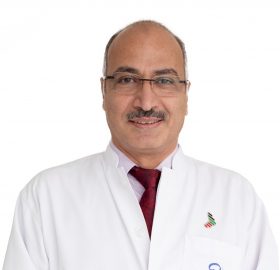Tried many non-surgical treatment options, but still experiencing functional decline and disabling pain in the knee, hip, or shoulder? Arthroscopy and Arthroplasty are the safest and most reliable surgeries with long-term life expectancy for hip, knee, or shoulder arthritis. These kinds of Joint replacement surgeries are typically recommended for patients with advanced end-stage joint diseases.
Arthroscopy is a less-invasive procedure involving a small incision that allows for the insertion of a specialized scope into your affected joint. Arthroplasty is commonly known as joint replacement surgery. When compared to Arthroscopy, it is a more major open surgery involving the replacement of your joint with a replica artificial joint.
Who needs Joint Replacement Surgery?
Severe arthritis can be caused by a variety of problems including osteoarthritis, rheumatoid arthritis, osteonecrosis, inflammatory joint problems, previous joint injuries and fractures, and joint infections. All these health conditions can damage different structures in the joints and eventually lead to irreversible injuries.
Joint replacement surgeries are typically not the first option for those suffering from joint pain. Treatment options like medication, physical therapy, and certain changes to your everyday routine are advised first for patients with joint pain. If these non-surgical treatments do not help and patients continue to experience functional decline and disabling pain, the doctor may recommend joint replacement surgery.
Mostly, Joint replacement surgeries are performed on patients between 60 and 80 years of age. But it does not mean that older or younger are automatically precluded. Consulting with an orthopedic surgeon can help determine if a patient is a surgical candidate for joint replacement surgery by examining multiple factors, such as the severity of arthritis, ligament injury, the patient’s age, and activity level.
Most common orthopedic surgeries
Your doctor may recommend orthopedic surgeries for several health conditions. Knowing what to expect before, during, and after these surgeries may make you feel less anxious and more relieved. Below are a few of the most common orthopedic surgeries.
The most common knee injuries include sprains and tears of soft tissues like ligaments, fractures around the knee, and dislocation. Doctors recommend Knee Arthroscopy to diagnose injuries, repair injured soft tissues and bones, and remove damaged or inflamed tissues. During arthroscopic knee surgery, a small camera will be inserted through an incision to view the inside of your knee. The images appearing on the screen in the operating room help the doctors to diagnose and treat problems in the knee.
The Anterior Cruciate Ligament (ACL) connecting the thighbone to the shinbone is one of the key ligaments that help stabilize the knee joint. ACL reconstruction surgery is performed to replace a torn ACL resulting because of injuries caused by sports activities that involve sudden stops and changes in direction such as soccer, basketball, etc. The goal of the surgery is to reduce pain and swelling, restore your knee’s full range of motion, and strengthen muscles.
Injury, overuse, and age-related wear and tear are the main causes of shoulder problems. Shoulder arthroscopy is recommended in these cases to relieve pain and repair damages caused to rotator cuff tendons, labrum, articular cartilage, and other soft tissues surrounding the joint. Procedures such as nerve release, fracture repair, and cyst excision are also performed using an arthroscope. Most arthroscopic procedures take less than an hour, however, the duration of your surgery will depend on the nature of repairs required for the shoulder.
Total Knee Arthroplasty (Unilateral)
A normal knee functions as a hinge joint between the upper and the lower leg bones. The surfaces where the upper and lower bones meet can become worn out over time, often due to arthritis or other conditions, which can cause severe pain and swelling. Total knee replacement is the surgical procedure to replace the knee joint with artificial parts in case of persisting knee pain. Total knee replacements are performed successfully at all ages, from the young teenager with juvenile arthritis to the elderly patient with degenerative arthritis.
Total Hip Arthroplasty (Unilateral)
Hip replacement surgery can address hip pain and stiffness for people with arthritis, avascular necrosis, or any other forms of hip joint damage. The surgery is usually recommended only if other treatments, such as physiotherapy or steroid injections, have not helped reduce pain or improve mobility. Full recovery after the surgery generally takes anywhere from two to eight weeks, depending on the patient’s general health and other factors.
Joint Replacement Surgeries at NSH, Dubai
NSH, Dubai delivers the most advanced Joint Replacement Surgeries with skilled Orthopedic surgeons and state-of-the-art facilities. Our wide range of hip and knee replacement surgery options can significantly improve mobility, reduce pain and enhance the quality of life.
If you would like to have additional information on available treatments or would like to enquire about joint replacement surgeries at NSH, Dubai, please book an appointment with our Orthopedic Consultants.








